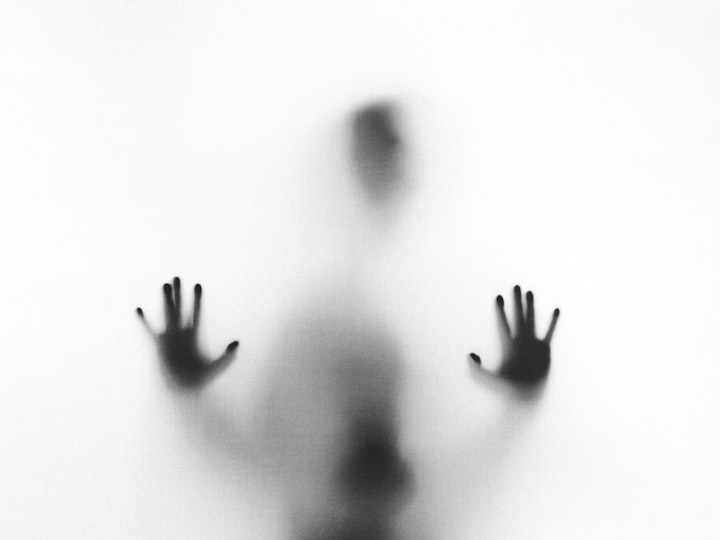
Possible causes behind depression
What is depression
Depression is a psychological condition characterized by a feeling of sadness, fatigue, isolation, and loss of interest in daily activities. This condition can affect a person's behavior and general state of Health and may lead to problems at work and social relationships. The symptoms experienced by people with depression are varied and include anxiety, stress, insomnia, and loss of appetite, some patients suffer from thinking and memory disorders and depression may cause negative beliefs and closed thinking, but depression can be treated by drug therapy, psychotherapy, and lifestyle changes
Causes of depression
There are several causes of depression, including
- Genetic factors
- Hormonal changes
- Exposure to psychological stress
- Having a traumatic event or psychological trauma
- Having a chronic physical illness
- Addiction to drugs or alcohol
- Lack of vitamin D in the body
- Taking certain medical drugs
- Having a mental illness such as schizophrenia
- Influencing environmental and social factors
Genetic factors
Studies suggest that genetic factors of depression may be influential in the emergence of this psychological disorder. Scientists have found that there is a correlation between a family history of depression and the likelihood of developing depression later. In addition, genetic studies have shown the presence of several genes associated with an increased chance of depression, and these genes may affect the regulation of chemical and hormonal processes in the brain, leading to abnormalities in brain activity and changes in the chemical and nervous balance of the body, increasing the likelihood of depression.
Hormonal changes
Several studies suggest that hormonal changes may trigger depression. For example, hormonal changes during pregnancy, childbirth, and periodic interruption of menstruation (menopause) can affect the increased likelihood of depression in women. Hormonal changes can also cause depression in both men and women, such as a lack of dopamine or serotonin in the brain, two hormones that help maintain a stable mood, happiness, and healthy emotional response.
Moreover, some drugs used in the treatment of hormonal diseases, such as glandular disorders, may trigger depression as a side effect. Thus, understanding the hormonal changes in the body and how they can affect the brain, mood, and emotion is important for understanding the possible factors behind depression.
Exposure to psychological stress
Exposure to psychological stress is one of the potentially important factors behind the development of depression. Constant psychological stresses in life, such as family or work pressures, can negatively affect mental health and increase the likelihood of developing depression.
Exposure to psychological stress leads to the release of cortisol, a stress hormone that is released by the adrenal glands of the body. Thus, constant exposure to psychological stress increases the secretion of cortisol, which leads to changes in the brain and a decrease in blood flow to certain brain areas, which affects mental health.
Many studies suggest that people who are exposed to psychological stress continuously for long periods, such as work pressures, or social pressures, can increase the likelihood of developing depression and other mental health-related diseases. Therefore, it is important to focus on mental health and learn how to cope with the challenges and psychological stresses in life.
Having a traumatic event or psychological trauma
Being hit by a traumatic event or psychological trauma can lead to depression. A person may feel sad, angry, or frustrated after experiencing a traumatic or traumatic situation, such as losing a loved one or having a terrible accident. And this feeling may persist for a long time and turn into a depressive state. The depressed sufferer suffers from a decrease in mood, loss of interest in activities that he previously enjoyed, as well as a feeling of fatigue and inability to concentrate. And although depression can be painful and difficult, proper research and treatment can help overcome this condition and return to a normal and healthy life. It is recommended to seek medical and psychological help if you feel any of these symptoms or if they persist for a long time.
Having a chronic physical illness
Having a chronic physical illness is one of the painful things that affect the quality of life significantly, as it causes a change in daily lifestyle and disrupts many activities that are performed normally. This can lead to a feeling of sadness, stress, emotional and psychological vulnerability, and in some cases, it can lead to the development of depression.
People with a chronic physical illness experience a feeling of fatigue, exhaustion, and inability to carry out daily activities with the same efficiency and effectiveness, as a result of which their emotional and psychological state deteriorates. Having depression increases these problems and makes them worse, as it becomes difficult to get out of the circle of sadness, despair, and pessimism, and may significantly worsen mental and physical health.
Therefore, patients with a chronic physical illness must receive the necessary support from family, friends, and the surrounding community, as well as the necessary medical treatment and adequate health care to improve the quality of life and reduce negative psycho-emotional effects
Addiction to drugs or alcohol
Drug or alcohol addiction and depression are common problems in modern societies, as they affect the lives of individuals and their social and work relationships. Addiction can lead to increased depression, anxiety, and social isolation, and also affect physical and mental health and increase the risk of heart, nervous system, liver, and lung diseases.
On the other hand, depression may increase the risk of addiction, as some seek to relieve psycho-emotional pain through the use of drugs or alcohol, and this ultimately aggravates the problem and makes treatment more difficult. Therefore, individuals suffering from addiction or depression should seek appropriate help and appropriate treatment from experts in this field, work to improve their lifestyle, and social and work relationships to overcome these problems and improve their quality of life.
Influencing environmental and social factors
Research suggests that environmental and social factors may significantly influence the risk of depression. Among these factors are:
Or schoolwork, and this can lead to depression.
Exposure to violence: exposure to physical, psychological, or sexual violence can lead to depression.
Social factors: such as poverty, social isolation, and social discrimination, can increase the risk of depression.
A traumatic event, such as loss of work, death, or divorce, can lead to depression.
Genetic factors: research suggests that there is a genetic factor that can increase the risk of depression.
Addiction to chemicals: addiction to chemicals such as alcohol and drugs can lead to depression.
These factors may significantly affect the risk of depression, and a person may need the necessary treatment and support to overcome this mental health condition.
Conclusion
In conclusion, it can be said that depression is a common and important problem that calls for awareness and deep reflection on the causes that lead to it. People may be affected by various environmental and social factors such as psychological stress, poor social relationships, financial problems, and sudden and painful life changes.
To face this problem, it is necessary to promote health awareness, encourage individuals to get the necessary treatment, and seek social and psychological support. Therefore, we all need to work together to encourage society to talk openly about depression and work to reduce the factors that contribute to its occurrence.
#Depression
About the Creator
ABDO
Professional article writer and designer.






Comments
There are no comments for this story
Be the first to respond and start the conversation.